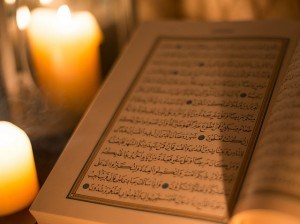
For the next month Muslims around the world will fast from sunrise to sunset to celebrate Ramadan, the most sacred month of the Islamic Calendar.
In Jasper, that means people will refrain from consuming anything for about 18.5 hours a day, considerably longer than in the Middle East, where the sun is usually up for about 14 hours a day.
Ramadan, which officially began on June 7, is a time for Muslims to focus on physical and spiritual purification and typically includes increased offerings of salat prayers and the recitation of the Qur’an, the Islamic holy book.
“Ramadan is the ninth month of the Islamic calendar and the reason we fast is because the Qur’an was revealed to Muhammad during Ramadan,” said Mona Hussein, who owns Coquihalla Gifts with her husband, Mahmoud.
“At the same time you have to serve the community. At the end of the month, before Eid, we give 2.5 per cent of everything we own to the poor,” she said, referring to Eid Al-Fitr, which marks the end of Ramadan and the end of fasting.
Followers of Islam believe that fasting during the month of Ramadan helps Muslims learn patience, modesty and spirituality.
“Ramadan teaches us a great deal about discipline and about being committed to something greater than you are,” said Mona Ismaeil, the eldest daughter of Mona and Mahmud.
“When we’re not eating for 18 hours you have to really fight your inner self … you have to really believe in it to be successful, it’s a great test of faith.”
Not only are Muslims expected to abstain from food and drink, they are also expected to abstain from intimacy as well as bad habits like smoking.
“It’s very similar to Lent, it’s about giving up something for a greater reason than our worldly desires and our worldly needs,” said Ismaeil, referring to the Catholic holiday.
During Ramadan two main meals are served, Suhoor, which is served before Muslims start fasting around two or three in the morning, and Iftar, which is served after sunset.
To break the fast, Muslims typically eat a date because the Prophet Muhammad was said to break the fast with ripe dates before eating his meal.
“Some people eat Suhoor before they sleep and some people sleep for a couple hours, wake up, eat the Suhoor and go back to sleep, that’s what I do,” explained Hussein.
“After Suhoor you complete the fajr prayer, which is the sunrise prayer, before you go back to sleep, if you want.”
In addition to fasting, Muslims are also encouraged to read the entire Qur’an during the holy month. Some Muslims recite the entire Qur’an by means of special prayers called Tarawih. These voluntary prayers are held in mosques every night and recited by the imam, which is similar to a priest.
“The Qur’an is 30 parts, so by the end of the month the imam has finished the Qur’an” said Hussein, explaining they don’t do this because it’s supposed to be a group prayer and the closest mosque is in Edson.
Ramadan lasts between 29 and 30 days, depending on the visual sightings of the crescent moon. This year Ramadan will continue for 30 days ending July 7 with the culmination of Eid Al-Fitr, a three-day celebration.
“It’s really about celebrating the holy month,” said Ismaeil, explaining she gets together with family and friends to mark the occasion.
The elderly, sick and mentally ill are exempt from fasting, as are pregnant, menstruating and nursing women.
Paul Clarke
[email protected]
